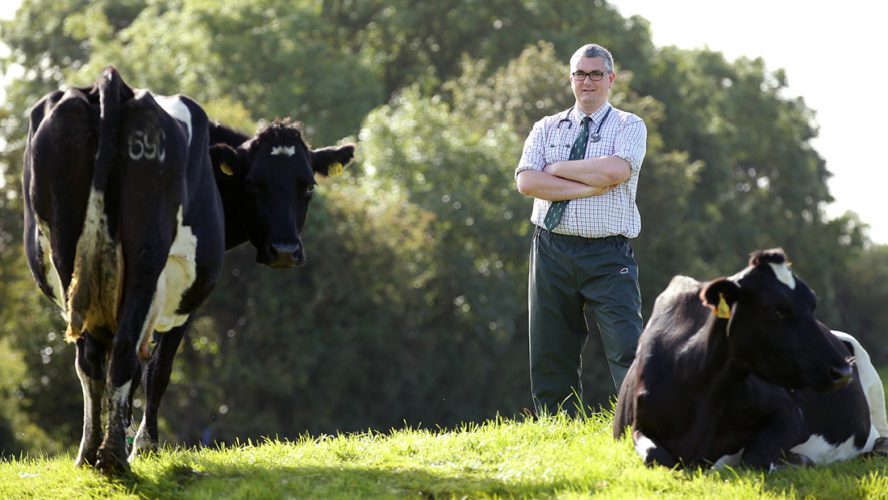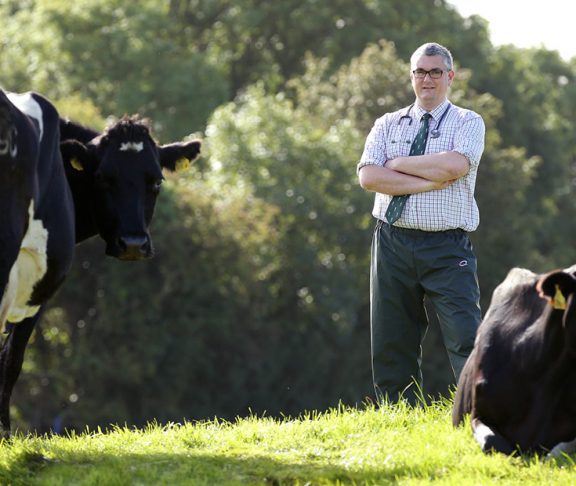
Simon Doherty
BVA Senior Vice President
The UN predict global consumption of animal-derived foods will double by 2050. Meanwhile, agriculture, forestry and other land use account for 23% of man-made greenhouse gas emissions*. The need for more environmentally-friendly ways of working has never been greater.
Farmers have been working towards improving the sustainability of their enterprises for many years. The issue is one that generates a great deal of discussion across the agricultural community.
Improving efficiency within herds, using fewer antibiotics and careful use of natural resources are recognised as important areas for improvement, but how can we make sure that animal health and welfare are maintained – or improved – as we move towards more sustainable production systems?
This year, BVA launched a position on UK sustainable animal agriculture; looking at how animal health and welfare can be kept front-of-mind in plans for future farming and how vets can work with farmers to contribute to the livestock sustainability agenda in the UK.
Being green and caring for your animals
Veterinarians play a key role ‘from farm to fork’ and are in a prime position to advise on ways of working that deliver both environmental benefits and improve the lives of the animals within the production system.
BVA’s new position specifically recommends that animal welfare is not compromised to address human need, drive production or reduce the ecological footprint of animal agriculture.
Farmers and vets need to work together to create meaningful farm health plans to help prevent and control disease and drive improved productivity, while maximising welfare.
An example of this would be in how we embrace novel technologies to monitor animal health and welfare, in ‘the right way’.
While recognising the potential impact of innovation, BVA suggests that automated systems should not replace skilled farmers and veterinary professionals but combine the skillsets of those groups of people working collaboratively.
Back-to-basics animal husbandry is key to keeping healthier and happier animals that will be more productive, and automated technology can play a useful role in helping us to achieve that.
In turn, this will lead to lower antibiotic and lower lifetime greenhouse gas emissions, resulting in reduced environmental impact.
How does this work in practice?
Farmers and vets need to work together to create meaningful farm health plans to help prevent and control disease and drive improved productivity, while maximising welfare.
The vet-farmer relationship is at the core of all of this – if we can work together to plan for and create solutions to problems before they happen, we can create a farming landscape that is more efficient, has less of an impact on natural resources and the environment and has high animal welfare at its core.
Simon Doherty, Senior Vice President of the British Veterinary Association (BVA), is based at the Institute of Global Food Security, Queen’s University Belfast. He is a former Animal Science & Aquaculture Specialist to the UK Government Department for International Trade (DIT) and has a keen interest in One Health and is an advocate of sustainable animal agriculture
*Climate change and the land (2019), Intergovernmental Panel on Climate Change (IPCC)

